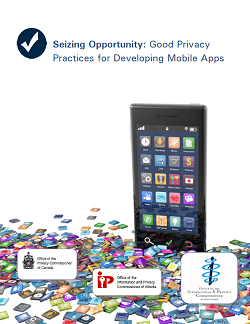Guidance Documents
 The Office of the Information and Privacy Commissioner (OIPC) publishes guidance documents to inform people living in BC and promote compliance with the province's access and privacy laws.
The Office of the Information and Privacy Commissioner (OIPC) publishes guidance documents to inform people living in BC and promote compliance with the province's access and privacy laws.
Please note that these documents are provided for information only and are not considered legal advice or other advice by the OIPC. Responsibility for compliance with the law rests with each organization and public body.
Our most frequently accessed guidance documents are featured at the top of this table.
To view joint resolutions issued by the Federal, Provincial, Territorial Information and Privacy Commissioners, visit the Collaboration page: https://www.oipc.bc.ca/news-events/collaboration/


